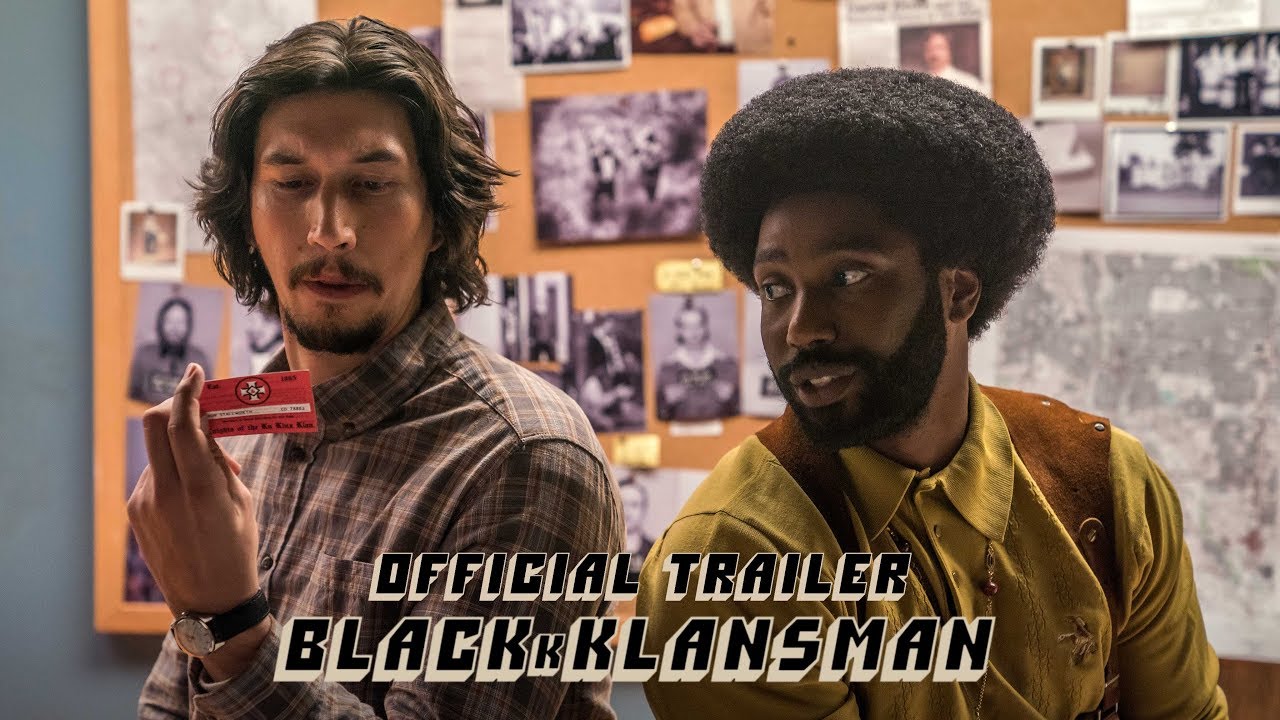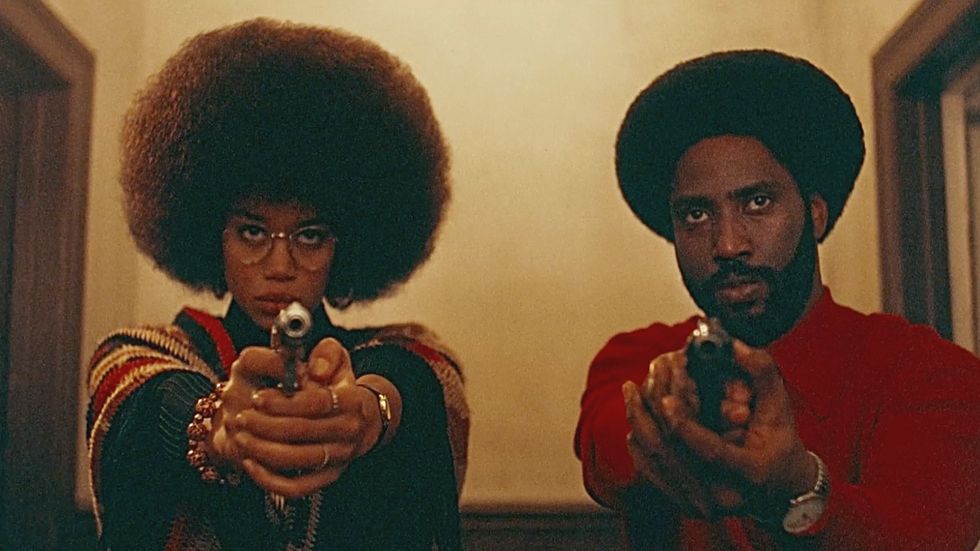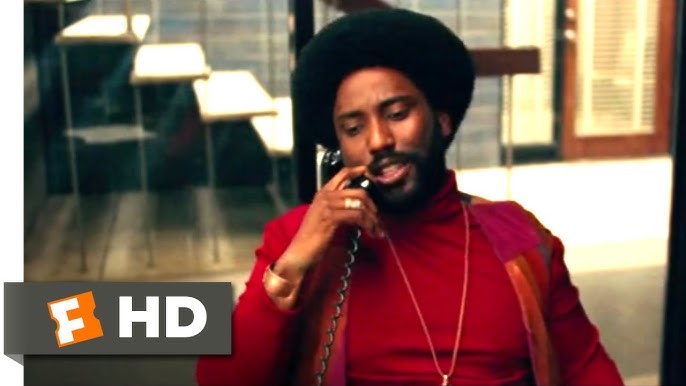🎬 BlacKkKlansman (2018)

🎬 BlacKkKlansman (2018): A Tale of Identity and Justice
BlacKkKlansman, directed by Spike Lee, is a powerful and thought-provoking film based on the true story of Ron Stallworth, an African American detective who infiltrated the Ku Klux Klan in the 1970s. The film blends elements of drama, comedy, and political commentary, exploring themes of racism, identity, and social justice in America. It serves as a poignant reflection on the ongoing struggles against hate and bigotry, making it a relevant and timely piece of cinema. ✊🏿🎥

Set in Colorado Springs, the film follows Stallworth (played by John David Washington) as he becomes the first Black detective in the local police department. Eager to prove himself, he takes on the challenge of investigating the Klan, using a clever ruse to communicate with its members. With the help of his white colleague Flip Zimmerman (played by Adam Driver), Stallworth conducts an undercover operation that leads to a series of outrageous and dangerous encounters with Klan leaders, including David Duke (played by Topher Grace). 🕵️♂️🔍
The film adeptly balances humor and gravity, employing witty dialogue and absurd situations to highlight the ridiculousness of hate while addressing the harsh realities of racism. Lee’s direction is sharp, utilizing a dynamic visual style and a compelling narrative structure that keeps audiences engaged. The film’s pacing is masterful, alternating between moments of tension and comedic relief, allowing viewers to digest the weighty subject matter without becoming overwhelmed. 🎭🎬
One of the film’s standout aspects is its exploration of identity. Stallworth’s duality as a Black man posing as a white supremacist creates a compelling narrative tension, forcing both the characters and the audience to confront the complexities of race and identity in America. The film raises questions about authenticity, privilege, and the power dynamics inherent in racial relations, making it a rich text for discussion and reflection. ⚖️🌍
The performances in BlacKkKlansman are exceptional, with Washington delivering a charismatic and nuanced portrayal of Stallworth. Driver’s performance as Zimmerman complements Washington’s, as the two characters navigate their roles in the investigation while confronting their own identities. The supporting cast, including standout performances from Laura Harrier and Alec Baldwin, adds depth to the narrative, illustrating the far-reaching implications of racism and the power of solidarity. 🎭🌟
The film culminates in a climactic and powerful conclusion, weaving in real-life footage from the Charlottesville rally in 2017, which serves as a stark reminder of the persistence of hate and the ongoing struggle for justice. This juxtaposition of past and present highlights the film’s message: while progress has been made, the fight against racism and inequality continues. The emotional weight of the ending lingers long after the credits roll, prompting audiences to reflect on the implications of their own beliefs and actions. 🕊️🛡️

BlacKkKlansman received critical acclaim, earning six Academy Award nominations and winning Best Adapted Screenplay. Its ability to combine humor and tragedy while addressing pressing social issues is a testament to Lee’s directorial prowess and the film’s cultural relevance. It serves not only as an entertaining cinematic experience but also as a catalyst for conversations about race, identity, and justice in America. 🏆📽️
In conclusion, BlacKkKlansman is a compelling and impactful film that masterfully blends humor and drama to tackle the complexities of racism and identity. With its engaging narrative, ou

tstanding performances, and relevant social commentary, it stands as a significant work that resonates deeply with contemporary audiences. The film not only entertains but also challenges viewers to confront their own beliefs and advocate for justice in an unjust world. ✊🏾🎉











